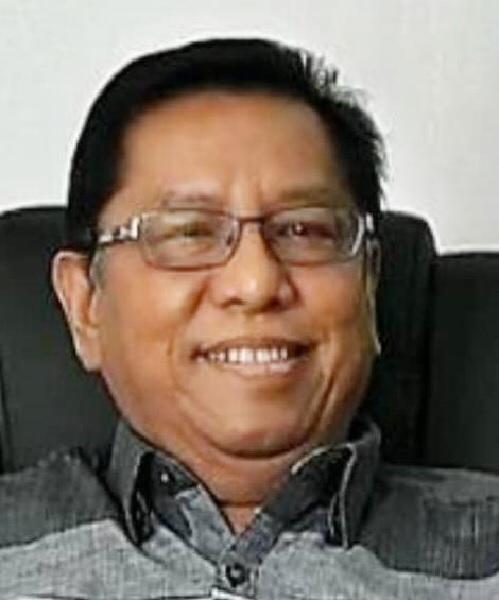KOTA KINABALU: Parti Kerjasama Anak Negeri (Anak Negeri), a non-aligned local political pressure group, has urged the Sabah State Government to invoke Article 112D (6) of the Federal Constitution to enable the appointment of an independent assessor or an arbitrator to determine the actual value of the state’s 40% entitlement if the Federal Government were to refuse or fail to act or fail to offer a solution or proper payment mechanism at the appointed time.
Its President, Datuk Henrynus Amin, said remarks by a certain senior GRS leader pointing out the Federal Government has no money to pay Sabah, perhaps justifying the non-fulfilment of the 40% state entitlement, were beside the point and legally irrelevant.
He said the federal government must first quantify and acknowledge the federal financial obligation to the state of Sabah under the Federal Constitution.
“Any solution to the 40% state entitlement claim must be comprehensive, not incremental or interim,” said Henrynus in a statement on Wednesday.
Henrynus therefore questioned UPKO’s motive or purpose in holding a roundtable discussion and then meeting the Sabah Chief Minister to propose an alternative payment mechanism for the 40% state entitlement.
He said Anak Negeri is surprised by UPKO’s move since the onus is upon the Federal Government to propose a payment mechanism, not the State Government, and certainly not UPKO.
He said it is the duty or responsibility of the Federal Government, which is liable under Article 112C and Section 1(2) Part IV of the 10th Schedule of the Federal Constitution, to offer an alternative payment mechanism acceptable to the Sabah State Government.
“The Sabah State Government should either accept or reject them or invoke Article 112D (6) of the Federal Constitution.”
“Under normal circumstances, when borrowers default or are liable on their loan or tax payment, they will negotiate and offer solutions on how they will repay their loan or pay their tax liability.
“It is highly abnormal for the bank or lenders to initiate or offer an alternative payment mechanism to help the borrowers who defaulted on their loan or tax payment.”
Henrynus reminded UPKO President Datuk Ewon Benedick that the Prime Minister of Malaysia, Datuk Seri Anwar Ibrahim, has promised to resolve the MA63 issue, including the 40% state entitlement, by July 2024.
He said based on the Prime Minister’s promises, the people of Sabah are waiting and anticipating the announcement in July this year of the new payment mechanism to fully comply with the relevant constitutional provisions.
He reminded Ewon that, as an UPKO President and on behalf of the 11 Sabah PH leaders, he has justified the withdrawal of their court case against the federal government solely on the basis of the Prime Minister’s promise.
*But it begs the question: why is UPKO jumping the gun?” he asked.
“Why is UPKO initiating a high-profile round table discussion and then meeting the Sabah Chief Minister?”
He said UPKO’s action can be misconstrued as lobbying the Sabah Chief Minister at the behest of the Prime Minister to accept a federal solution to the 40% claim.”
“Is UPKO really acting in the best interest of all Sabahans, or was he merely acting at the behest of the Prime Minister?”
Henrynus insinuated that UPKO’s initiative was a desparate act to justify the withdrawal of their court action against the Federal Government on the 40% claim late last year.
He said instead of helping the Federal Government to mitigate anger in Sabah, UPKO should urge the Sabah State Government to stand their ground on the matter and help rally public support, including all political parties, civil societies, and the people of Sabah, in demanding the immediate fulfilment of the relevant constitutional provisions on the 40% state entitlement.
UPKO, he said, should help the Sabah government exert maximum pressure to compell the federal government to pay or offer alternative payment mechanisms to fulfil the federal financial obligation to Sabah.
He said the 40% claim cannot be resolved by a mere roundtable discussion involving non-state actors such as individuals, non-governmental organisations, representatives of banks, corporations, media organisations, business magnates, lobby groups, religious groups, etc.
“The outcome of the roundtable discussion is at best an academic exercise.”
“The onus is upon the Federal Government to act, not the State Government.”
He said Anak Negeri takes note of the fact that the GRS State Government has signed state consent to accept an interim payment of RM125.6 million and then, more recently, agreed for the second time to a new figure of RM300 million.
“By signing the state consent, not once but twice, though purportedly without prejudice, the state government may have weakened the state’s bargaining position in demanding fulfilment of the 40% claim.
“The decision by 11 Sabah PH leaders to withdraw their court case against the Federal Government on the 40% state entitlement for reasons we all know and now putting their complete trust in the promises made by the Prime Minister may have sent the wrong signals to the Federal Government.
He said realistically, the Sabah Law Society (SLS) court action seeking a judicial review of the nonpayment of the 40% up until 2022 is the only viable legal avenue and potentially a political pressure to force the Federal Government to act or comply.


